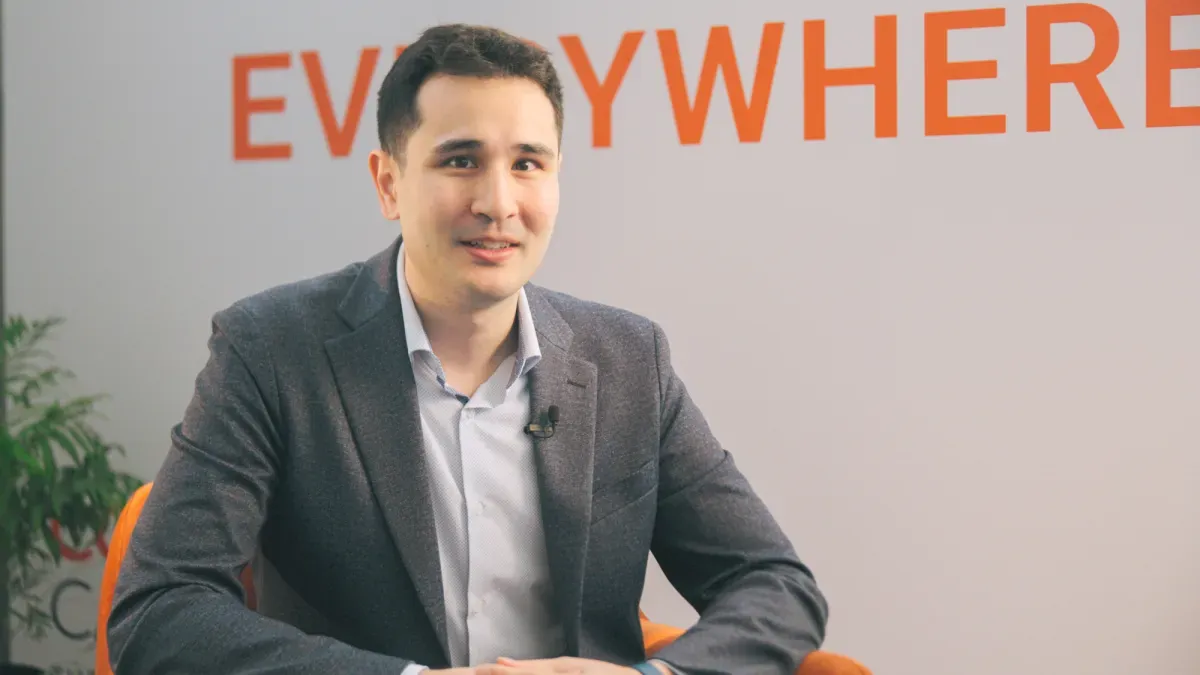Empowering Early-Career Oncologists to Deliver Tomorrow's Cures: A Q&A with Dr. Tim Ohlsen

These are challenging times for early-career oncology researchers and—by extension—the patients and families who need the treatments and cures those researchers dedicate their careers to pursuing. With grants disappearing and federal research funding in short supply, junior investigators are often among the hardest hit.
During this year’s ASCO Annual Meeting, Conquer Cancer had the chance to sit down with a range of young investigators to discuss the state of oncology research funding and the impact on the newest and future generations of oncology researchers. One of them was Tim Ohlsen, MD, a pediatric oncologist at Seattle Children’s Hospital and the recipient of multiple Conquer Cancer grants and awards. Here, he discusses the challenges early-career scientists are facing and the critical role that individual donors can play in bridging the gap.
CONQUER CANCER: You’ve received several grants and awards from Conquer Cancer over the past several years, including a Young Investigator Award (YIA) and, most recently, a Career Development Award (CDA). Can you talk about the impact that this funding has had on your career?
DR. OHLSEN: The YIA has been indispensable to my career trajectory and progress. My mentor was actually a recipient almost 20 years ago, and he still references the role that played in how his own very successful research career has unfolded. I’ve been really proud to follow in that tradition. Receiving this funding at a really critical juncture, early in my career, provided me time to build preliminary data that ultimately supported the work I’m now working to complete with my Career Development Award.
CONQUER CANCER: Early-career scientists do tend to be the most heavily affected when scientific funding declines. What’s the mood for those researchers right now, and what does it mean to you to receive funding at a time when it’s so hard to come by?
DR. OHLSEN: All of us in cancer research right now, but particularly young investigators, have been looking over our shoulders–we’re all a little bit nervous. We're especially vulnerable because we don't have the resources to continue our work as the federal funding landscape changes. That’s why I'm so thankful to have the security of support from Conquer Cancer.
CONQUER CANCER: What would you say to a young investigator out there right now who's really struggling to find funding and starting to lose hope?
DR. OHLSEN: For early-stage investigators right now, things can seem a little bit discouraging, particularly for people who have research questions pertaining to care delivery. I would encourage them to keep asking the questions that they want to ask and to keep pursuing the things that they're passionate about, for the patients who they care about.
I also think it's important to acknowledge that even as the funding landscape shifts, there are still opportunities and avenues—whether through really great mentors or really great organizations—to continue doing this important work, even when the going gets hard.
CONQUER CANCER: When it comes to charitable giving, a lot of people hesitate to donate because they don’t feel like they can give enough to make a genuine impact. And a lot of people just don’t understand what small gifts can really accomplish. What would you say to somebody who thinks that they can't give enough to make an impact?
DR. OHLSEN: A small amount really can go a long way. For patients and families who are living on the margins, I've found that even the smallest things can have a huge impact on their ability to participate in research and to navigate all of the things that are asked of them.
In my clinical experience, I’ve found that success is really a team effort. There are a lot of people behind the scenes—clinicians, social workers, ancillary staff—who contribute to achieving the best outcomes for all of our patients. In the research world, the same thing is true: More and more things are based on team science. It's not just a single person who's making a difference. When it comes to supporting both clinical and research efforts, I think the same theory applies: Small contributions from a number of people can be pulled together to make a big difference.
CONQUER CANCER: When it comes to conquering cancer, it’s easy to confuse the idea of curing the disease with that of eradicating it. Recognizing that, what does conquering cancer really mean to you? What would a world where cancer’s been conquered actually look like?
DR. OHLSEN: It's really hard to find someone who hasn't been touched by cancer personally. And it’s really interesting: We consider childhood cancer a rare disease; yet, at the same time, it's common enough and has such far reaching consequences for patients, families, and communities that so many people have been touched by it.
I occasionally meet people in situations where they find out what I do, and it's amazing to hear how many people have their own stories about family members or people in their community who've been drastically affected by a childhood cancer diagnosis. As a physician, it's a real privilege to get to know people and journey with them and, over the course of months and years, to watch them confront the worst challenges and also experience some of the most exciting victories.
To me, conquering cancer is about putting our best foot forward for our patients and families and giving them the best information to make educated decisions about their care and the best opportunities. And it means doing what we can do, to not just treat them, but to learn from their experience and improve things for the future.
At Conquer Cancer, we support researchers at every career stage. But, because early-career investigators like Dr. Ohlsen are often most vulnerable to funding shortfalls, and yet hold the greatest promise for decades of impact, we have a special commitment to supporting them and the innovative ideas they bring.